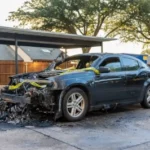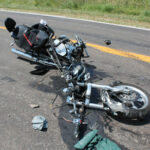San Antonio Car Accident Guide: Not At Fault in Texas
Experiencing a car crash in San Antonio, Texas, especially when you’re not at fault, can be overwhelming. This guide outlines the crucial steps to take after an accident to protect your rights and ensure you receive proper compensation.
Whether you live in San Antonio and were involved in a wreck or were just visiting some of San Antonio’s great tourist attractions and restaurants and your trip was interrupted by the inconvenience of a car crash while traveling, these guidelines are vital for navigating the aftermath of a collision in Texas – Caquias Law Group, PLLC has offices in San Antonio and the Rio Grande Valley, TX.
Immediate Steps at the Car Accident Scene in San Antonio
- Ensure Safety After Your San Antonio Car Crash: Turn on your hazard lights. If possible, move your vehicle to a safe location. Check for injuries and call 911 immediately if anyone is severely injured. Avoid moving severely injured individuals unless necessary. This initial safety step is paramount after any auto accident in Texas. TRANSPORTATION CODE CHAPTER 550. COLLISIONS AND COLLISION REPORTS
- Contact Authorities: Call 911 to report the accident. A police report is crucial for insurance claims and proving fault, even for minor damage. Texas law requires reporting accidents with injuries, fatalities, or significant property damage. Obtain the police report number and officer information. You can typically request the report online or in person. If you are told that a police report is not required because of the incident taking place on private property, ask that an “incident report” be taken at the minimum. Documentation of the event is crucial.
- Exchange Information: Share names, contact details, driver’s license numbers, license plate numbers, insurance information, and vehicle details with all involved drivers. Also, collect contact information from any eyewitnesses.
- Document the Accident Scene in Texas: Take photos and videos of the accident scene, including vehicle damage, injuries, skid marks, and road conditions. Note the date, time, location, and weather. Thorough documentation is key for your Texas car accident claim.
- Avoid Admitting Fault in a Texas Car Wreck: Do not admit fault or apologize, as it could be used against you by insurance companies. Stick to factual details when speaking to the police and other drivers. Remember, anything you say can impact your accident claim.
After leaving the scene
- Seek Medical Attention for Your Texas Car Accident Injuries: See a medical professional within a few days, even if you don’t feel injured immediately, as some injuries have delayed symptoms. This creates a crucial medical record essential for your personal injury claim. Follow all recommended treatments and keep meticulous records of medical expenses.
- Contact Your Insurance Company About the San Antonio Collision: Notify your insurer promptly about the San Antonio collision, regardless of fault, as most policies require it. Provide accident details, the other driver’s information, and the police report number. Avoid speculating on fault or making recorded statements without legal counsel from a San Antonio car accident lawyer.
- File a Claim with the At-Fault Driver’s Insurance in Texas: Since Texas operates under an “at-fault” system, the other driver’s insurance is typically responsible for damages. You can file a claim directly with their insurer or with your own, which may then seek reimbursement. Your uninsured/underinsured motorist coverage may apply if the other driver lacks sufficient insurance for your Texas accident claim.
- Track All Expenses and Damages from Your Auto Accident: Keep detailed records of all accident-related expenses, including medical bills, repair costs, and lost wages.
- Consult a Car Accident Attorney: If you are not at fault, you can seek compensation for your injuries and damages. An attorney can explain your options, help with the claims process, negotiate with insurers, and potentially file a lawsuit. They can also help calculate the full value of your claim, including long-term costs. Note that Texas has a two-year statute of limitations for filing lawsuits for personal injury or property damage from a car accident.
Important considerations
- Modified Comparative Negligence: In Texas, you can still recover damages if you are less than 51% at fault, but not if you are 51% or more at fault.
- Insurance Company Tactics: Be aware that the other driver’s insurance company may try to minimize payouts. Avoid admitting blame or giving recorded statements without consulting an attorney.
- PIP (Personal Injury Protection): While not required, PIP can cover immediate medical expenses and lost wages regardless of fault. Your insurer must offer it.
- Police Reports: The police report is important for your claim and determining liability.
Prioritize your safety and well-being after a car accident. Seeking medical attention and legal advice promptly can help protect your rights and ensure you receive fair compensation. Consider consulting a San Antonio car accident attorney for guidance specific to your case. Many local firms offer free consultations.








